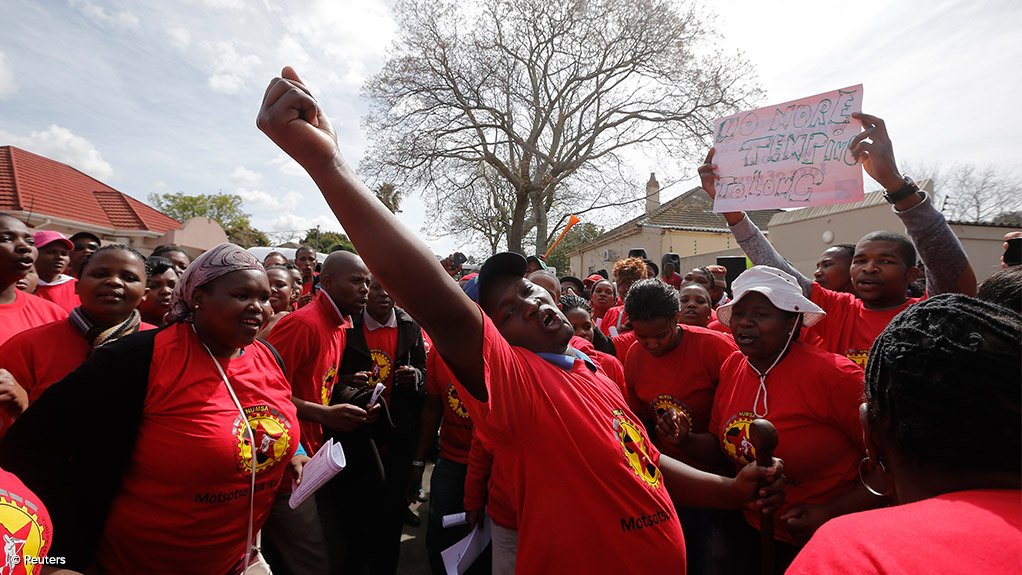While the relationship between labour and business in South Africa has weakened to one typified by adversarial stances and marred by violent strikes, Labour Minister Mildred Oliphant remains confident that the industrial labour relations environment can recover to a point where both parties could work cooperatively to drive the country’s industrialisation agenda.
Oliphant told the Steel and Engineering Industries Federation of Southern Africa’s (Seifsa’s) Southern African Metals and Engineering Indaba on Friday that business and labour’s ability to work together had been proven “many times” and had been reinforced through the introduction of the 1996 Labour Relations Act and several subsequent accords.
“It is possible for business and labour to work together in the best interests of the country, but the question we should ask is what happened to these [prior] commitments?
“We need to deal with the basics and create a conducive environment…and investigate what drives the adversarial relationship between the two,” she said.
According to Oliphant, mistrust between labour and the private sector was the result of a lack of direct engagement with labour by business, intense union rivalry and dramatic wage inequality.
“People had high expectations of a post-Apartheid South Africa, and they now have access to information and the Internet…and feel as though democracy is working well for business, but not for [themselves].
“They don’t understand why they continue to struggle while bosses reap huge bonuses,” she commented.
Oliphant further encouraged the signing of a social contract that committed labour and business to working collaboratively together, while reiterating her support for a proposed national minimum wage, which she believed would strengthen collective bargaining.
“As government, we’ve created legislation to allow conducive negotiations… and everyone accepts that we need to have discussions so that we can sort things out.
“We need to look at what triggered [the recent] violent, prolonged strikes and why negotiations are taking longer, because…at the moment, labour and business don’t trust each other,” she averred.
Demonstrating a willingness to engage positively with employers, the National Union of Metalworkers of South Africa general-secretary Irvin Jim on Friday called for an improved dialogue between the parties, telling the conference during a panel discussion that collective bargaining would, however, need to remain central to any negotiations.
He further acknowledged that business was “bleeding” as a result of policies that had stifled manufacturing and industrialisation.
“There is no need to despair. We have the challenge of fixing [this] relationship, which has to do with building strong trade unions and strong employer bodies that accept the importance of collective bargaining.
“Labour and business [should] have a dialogue and identify that there is an emerging threat to attack collective bargaining…and we should be using the time between negotiations to improve dialogue between labour, the Labour Minister, government and business,” he noted, adding that he supported the introduction of a national minimum wage.
Employer body Seifsa CEO Kaiser Nyatsumba added that the symbiotic nature of the relationship between business and labour meant that each had a vested interest in creating a stable labour relations environment.
He believed that collective bargaining needed to take place in “a mature manner” through the adoption of a constructive approach that sought to advance the industry and emphasise a “win-win” outcome rather than a “winner takes all” result.
“Logically, it’s fundamentally in all our interests that the metals and engineering sector is stable and competitive to [enable us to] stave off imports and capture a greater share of the international market.
“We are all in this together,” he concluded.
EMAIL THIS ARTICLE SAVE THIS ARTICLE
To subscribe email subscriptions@creamermedia.co.za or click here
To advertise email advertising@creamermedia.co.za or click here











